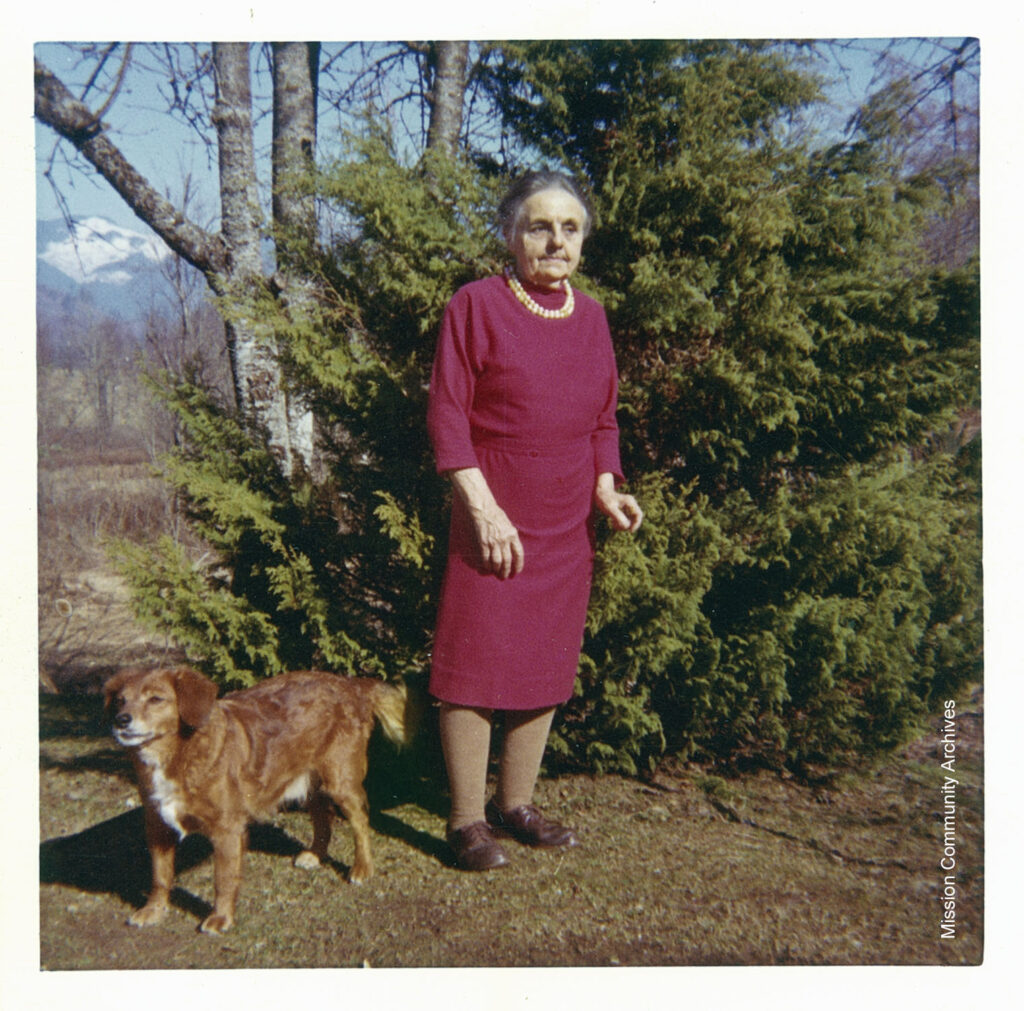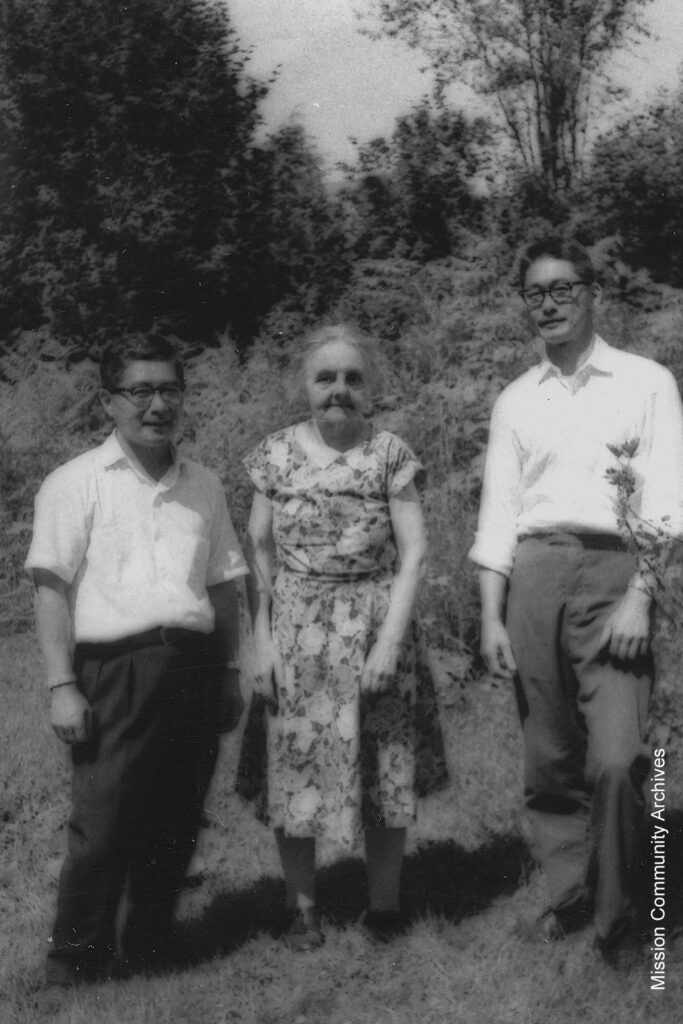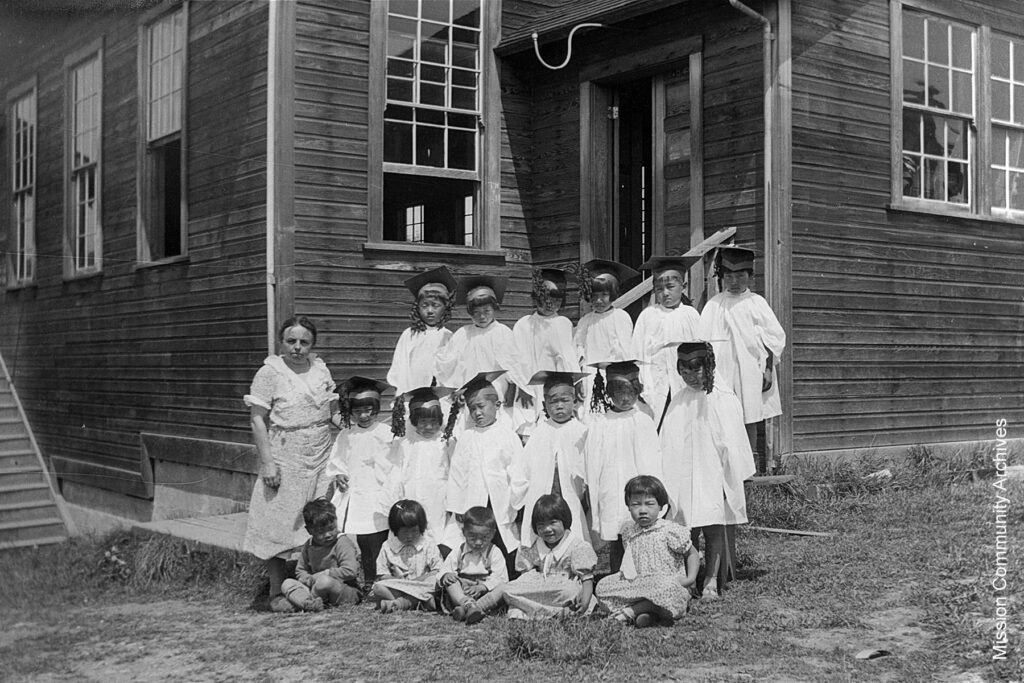
Emma Barnett taught in Mission, British Columbia at the Mission Language School during the Great Depression and the World War Two eras. The main purpose of the Mission Language School was to teach Mission’s Japanese children enough English to be able to enter the English public school system. At the Mission Language School, Mrs.Barnett was tasked with teaching kindergarten-aged Japanese students English. Although she never received formal training she was a community member that had a passion for children and education. Mrs.Barnett’s passion for her students was clear in how much she knew about them and their families. As an educator, Emma Barnett took the time to get to know her students and would keep track of everything in her personal notebooks. Every year she would write down where and when every student was born so she would remember their birthday. As well, Mrs.Barnett would keep track of students’ attendance and reach out to students’ families if they missed two classes in a row. These small gestures of Mrs.Barnett let her students know that she was there for them and truly cared about their futures.
During the Great Depression and World War Two era, Canada was a country rampant with racism and anti-Asian sentiment. Most European Canadians during this time looked down upon Asian Canadians and held many stereotypes. But not Mrs.Barnett, she welcomed her Japanese students into the Mission Language School and tried her best to connect with them even though she didn’t speak Japanese. One of the encounters that Mrs.Barnett experienced with her husband Mr.Barnett that opened her heart and mind to the local Japanese community was a favour from a stranger. In a letter to the city of Mission from the Barnett’s, it reads “While in mission looking for a place where I could settle with my family and the first gentleman to show me a kindness was our mutual friend Mr. Kudo” (Mr. and Mrs. Barnett, 1934).

Specifically, Mrs. and Mr. Barnett were making their way through Mission, when a Japanese man known as Mr.Kudo offered them a lift on his horse-drawn buggy. After this encounter over the years, Mr.Kudo and the Barnetts built a close relationship and helped each other out when needed. When looking for work, Mr.Kudo helped the Barnetts and offered Mrs.Barnett a position at the Mission Language School. The Barnetts fondly remember “From such a small beginning as a buggy ride given to a stranger coming into your community has grown a friendship which I trust nothing will break but that it will continue to grow still stronger especially during these time when everything looks black”(Mr. and Mrs. Barnett, 1934). This first experience with Mr.Kudo without a doubt had an impact on how Mrs.Barnett and how she viewed the Japanese community in Mission British Columbia. If she hadn’t experienced the kindness and support from Mr.Kudo during her time of need it is unclear if she would’ve gone on to become an inclusive educator.

Once Emma Barnett started to teach it seems she embraced some of her students’ Japanese culture, as in the margins of her attendance book she wrote “Sensai (Teacher)” (Barnett, 1933-1942). Compared to other Canadians during this time Mrs.Barnett was very welcoming and kind to her students. She provided them with an opportunity when many other Canadians wouldn’t have due to their Anti-Asian sentiments. Even as Canada entered into World War Two in 1939, Mrs.Barnett continued to teach her Japanese students up until 1942. Sadly by that time due to the Anti-Japanese sentiment of WWII many of her students and their families were sent to internment camps or had to leave Canada entirely. It is impressive that even during a time of struggle and hardship Mrs.Barnett continued to work with her Japanese students in the Mission Language school. As an inclusive educator, Emma Barnett saw that her students needed her more than ever and took on the challenges that came with it.